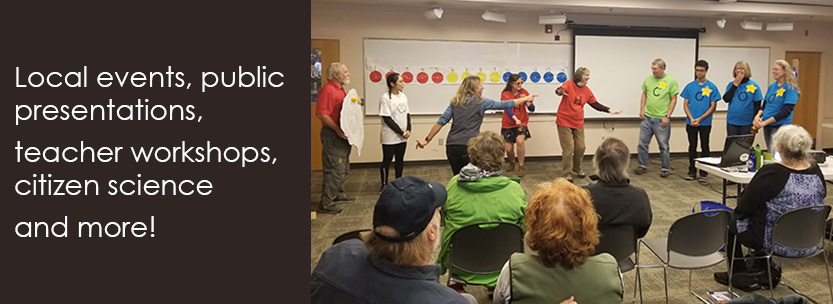Community Events
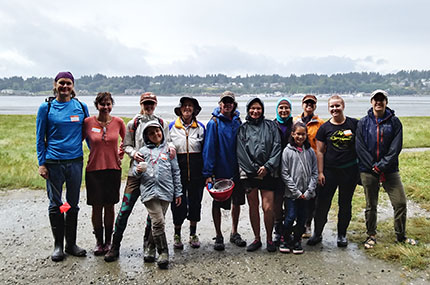
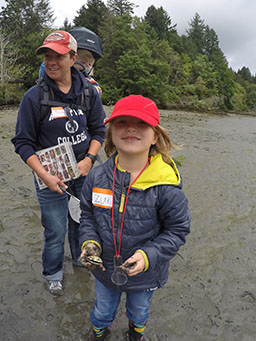 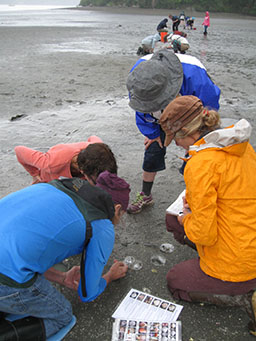
South Sound community scientists out on the beach with PSI biologists and local experts during a beach BioBlitz. Join us late August for the next blitz, all ages and abilites welcome! What is a BioBlitz? Learn more about this event here and why long-term monitoring is important to Puget Sound health.
Public Lectures
PSI biologists love talking about science and sharing our research with the public. Our vision is to create a community that is knowledgeable about local water quality issues and inspired to take every day actions to protect the health of Puget Sound. Our diverse research portfolio and range of expertise among our staff allow us to present on a wide range of informative and engaging topics in marine and estuarine science from shellfish biology, ocean acidification, harmful algal blooms, aquaculture practices and interactions to marine debris and beyond. Examples of previous talks include, "The Science of Shellfish" as part of the South Puget Sound Salmon Enhancement Groups science series and "Compost to Cucumbers: Solutions to Nutrient Pollution in Puget Sound" as part of the Washington Science Teachers Association science series in Olympia. PSI previously hosted our own lecture series, "Puget Sound and Pie!" that was free to the public, stay tuned for future events.
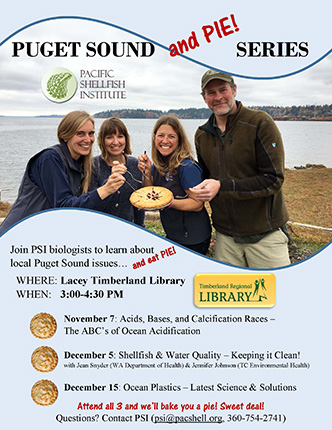
|
What's Blooming in Budd - Phytoplankton Monitoring
Thanks to a partnership with Stream Team, PSI biologists help citizen scientists get up close and personal with some of the smallest organisms in the sea: phytoplankton! Drop a net into the rich waters of Puget Sound to collect a jar of nutritious plankton soup. Prepare to be amazed as a drop of water comes to life under the microscope. Grab a clipboard and record water temperatures, salinity, water clarity and weather conditions. See how many other creatures you can find living among the pilings – barnacles, jellies, sticklebacks, mussels, and more!
Learn More
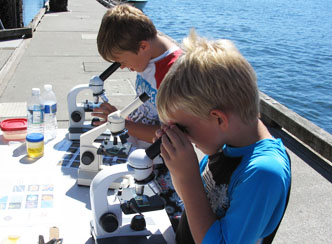
Young visitors investigate phytoplankton they collected from Budd Inlet. Join PSI Thursdays during the summer months, 1-2pm at the Port Plaza Dock!
|
OUTCOMES AND IMPACTS
PSI’s leadership of this Budd Inlet plankton monitoring program has touched hundreds of citizens each year since 2013. Data is utilized by Sound Toxins and PSI's efforts have been featured in the Washington Department of Ecology's Eyes Over Puget Sound. |
Sound Toxins - Volunteer Phytoplankton Monitoring Network
SoundToxins (www.soundtoxins.org), a partnership among shellfish growers, learning centers, tribes, and volunteers, is a monitoring program designed to provide early warning of harmful algal blooms (HABs) in order to minimize both human health risks and economic losses to Puget Sound fisheries. The program is administered by Washington Sea Grant and NOAA Fisheries. PSI has participated in monitoring programs such as the Olympic Region Harmful Algal Bloom partnership (ORHAB) (2001-2008) and SoundToxins because of the valuable role these programs play in better understanding and predicting HAB events.
PSI continues to participate in the SoundToxins rapid-response program by assisting with volunteer on-site training and support; data entry and quality assurance; and HAB monitoring. Our staff attends annual phytoplankton identification refresher courses and collects seasonal weekly phytoplankton samples and water quality data at several south Puget Sound locations. Staff is also responsible for providing Washington Sea Grant with periodic Sound-wide data.
Learn More
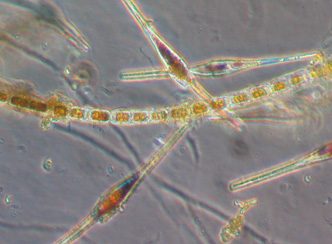
Efforts by PSI and SoundToxins volunteers help resource managers make more informed decisions that protect both industry and human health.
|
OUTCOMES AND IMPACTS
PSI’s participation in SoundToxins has helped establish more sampling locations throughout Puget Sound. PSI trains new volunteer monitors to increase the number of “eyes on the water." Data collected for this long-term database improves our understanding of HABs and regional water quality conditions.
|
Shellfish Gardening
As filter feeders, bivalve mollusks such as oysters cleanse local waters and provide a complex structure that supports juvenile fish, crab and shrimp species. These filtration and nutrient cycling services are particularly helpful in combating increased nutrient pollution associated with a growing human population. Oyster gardening (hobby shellfish farming by private tideland owners) enhances water quality and raises awareness of water quality issues and the role of bivalve shellfish in Puget Sound in an enjoyable, hands-on way. PSI provides training and information on developing private shellfish gardens, which include species selection, methods and materials, environmental conditions, and human health considerations.
Learn More
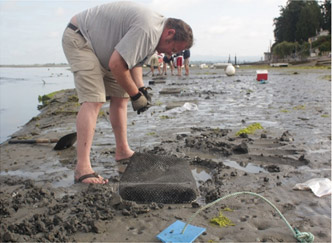
Are you a shoreline resident on Puget Sound? Interested in growing your own shellfish? Contact PSI for more information about shellfish gardening.
|
OUTCOMES AND IMPACTS
PSI has provided training, information, and materials to more than 40 shoreline residents interested in growing their own clams and oysters. Participants not only learned how to grow their own shellfish, they also learned more about water quality conditions in their area and measures they can take to reduce pollution.
|
Shellfish Farmers as First Responders to Spills
Oil spills occur with disturbing regularity in our coastal waters. Spills originating from vessel groundings or minor oil spills in adjacent uplands can adversely impact shellfish growers, and tribal, commercial and recreational harvesters. Unless they are properly trained and certified, growers cannot participate directly in spill containment and cleanup. PSI has provided oil spill response services ranging from preventative training and initial assessment to spill containment, cleanup, and loss claims for growers in Puget Sound, Willapa Bay and Grays Harbor.
Learn More
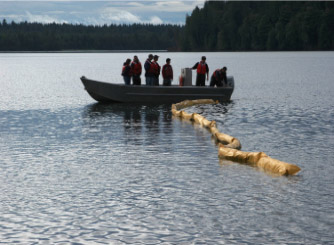
Oil spill kits that PSI staff made available to shellfish growers as a result of this training included absorbent bilge pads, gloves, a brochure targeting fishermen and boaters, and another brochure detailing measures vessel owners can take to prevent large and small spills.
|
OUTCOMES AND IMPACTS
PSI staff member Andy Suhrbier completed HAZWOPER training, which consisted of classroom and hands on exercises with DOE, EPA, Coast Guard, Navy, and professional cleanup personnel. Mr. Suhrbier chaired an Oil Spill Session at PCSGA and NSA Annual Conferences in 2005, where 199 oil spill kits were handed out to shellfish growers and scientists.
|
| |
|






